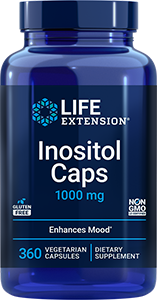- Science & Research
- Science News
- Newsletter
- 2013
- June 21

Newsletter
Newsletter
Research Supports Causative Role For Reduced Vitamin D Levels In High Blood Pressure
Research supports causative role for reduced vitamin D levels in high blood pressure
Friday, June 21, 2013. The annual conference of the European Society of Human Genetics was the site of a presentation on June 11 by Dr Karani S. Vimaleswaran of the finding of a causative role for vitamin D in the development of hypertension. "We knew from earlier observational studies that low 25(OH)D concentrations were likely to be associated with increases in blood pressure and hypertension, but correlation is not causality", remarked Dr Vimaleswaran, of University College London. Dr. Vimaleswaran reported the findings of the D-CarDia collaboration that included over 35 studies involving up to 108,173 participants which associated higher serum 25-hydroxyvitamin D levels with lower blood pressure. To validate causation, a team of researchers examined the association of four vitamin D-related genetic variants known as single nucleotide polymorphisms (SNPs) with 25-hyroxyvitamin D levels and with hypertension. An association with serum 25-hydroxyvitamin D levels was confirmed for all SNPs. The researchers uncovered an association between one SNP (CYP2R1) and diastolic blood pressure and hypertension. Following further analysis, they concluded that reduced vitamin D levels have a modest causal association with hypertension, with a 0.24 mmHg decrease in diastolic blood pressure and a 7% decrease in the risk of hypertension associated with each 10% increase in serum 25-hydroxyvitamin D. "Even with the likely presence of unobserved confounding factors, the approach we followed, known as Mendelian randomization, allows us to draw conclusions about causality because the genetic influence on disease is not affected by confounding," Dr Vimaleswaran stated. "To put it in simple terms, by using this approach we can determine the cause and effect and be pretty sure that we've come to the right conclusion on the subject." "Our study strongly suggests that some cases of cardiovascular disease could be prevented through vitamin D supplements or food fortification," he noted. "Our new data provide further support for the important non-skeletal effects of vitamin D. We now intend to continue this work by examining the causal relationship between vitamin D status and other cardiovascular disease-related outcomes such as lipid-related phenotypes, for example, cholesterol, inflammatory markers such as C-reactive protein, and type 2 diabetes and markers of glucose metabolism. We believe that we still have a lot to find out about the effect of vitamin D deficiency on health, and we now know that we have the tools to do so." |
||||||||||||||||
 |
||||||||||||||||
|
||||||||||||||||
|
||||||||||||||||
 |
||||||||||||||||
|
||||||||||||||||
|
||||||||||||||||
The latest news on aging, nutrition, and vitamins
Lab
Testing
How Life Extension lab testing works









